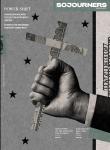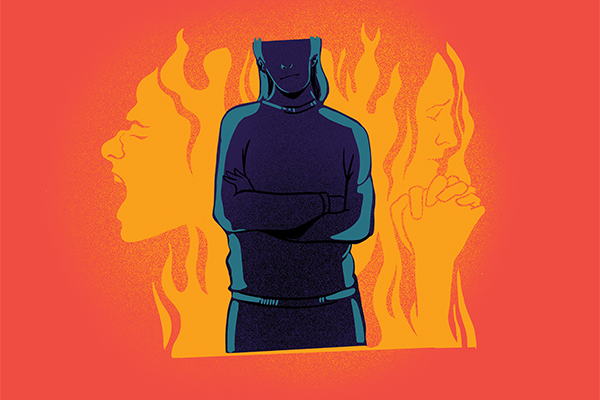WHEN RAGE OR disappointment, petty or vast, grips me, I sometimes lower my blood pressure with Lyle Lovett’s song “God Will,” in which the narrator asks his unfaithful partner who will trust, love, and forgive them for a litany of sins. The narrator answers his own questions in the chorus:
God does, but I don’t
God will, but I won’t
I use these words in the moments when I’m unable to release anger or to feel love toward those who have caused harm — I may be steaming, but I’ll accept for now that God loves and will forgive the people who I won’t (for now). There, in that space between who I am and who I believe God to be, my fury and pain can bide their time.
I have muttered “God will, but I won’t” a lot since Election Day, about political leaders and operatives who infuriate me and those who voted them into power. No party or candidate creates justice and mercy as I would long to see it in the world (the Biden administration failed on that front in many ways). But a different outcome might have allowed more breathing space and light to work toward a better life for all. It might have preserved democracy for a little longer and protected lives that now will be under direct threat.
I’ve wrestled with intense fear on behalf of neighbors and strangers and those I love, anxiety about the future, and disgust for people who have won political victory with a platform of racism, xenophobia, misogyny, and greed. Maybe, I confess, I even get a little angry with God: Let God love them, these people who neither fear God nor respect other human beings (Luke 18:2). Lives will be lost, systems and groups that deliver care and justice may be dismantled. The world will be even more dangerous for many more people. But sure, you be you, God. Love us all just the same: the aggressors, the prey, the useless bystanders.
In mid-November I attended an Episcopal Diocese of Washington confirmation service. Bishop Mariann Edgar Budde preached on Matthew 14:22-33, in which Jesus walks on water to the disciples in a storm-tossed boat and commands Peter to join him on the waves. Budde’s words were convicting. She described how being Christian means listening for, and accepting, that invitation “to walk on water ... to do something that feels impossible. To say yes when [Jesus] calls on us to be brave. ... To face what we would have done anything to avoid. To love when it is costly. And to show up when we’d prefer to turn and run.”
I know as Christians we are called to love one another and to love our enemies. And that love is not a passive sentiment or sweet feeling. Love does not mean saying “peace, peace” when there is no peace. Love speaks the truth. Under creeping authoritarianism — which runs in part on propaganda and distortion, while sowing division and confusion — telling the truth may be costly in ways we can’t yet fathom. Love requires risk and self-sacrifice. And being brave has never really been my thing. But I’m trying to practice, one day at a time.
Holy love is never cajoled or coerced. But love is a viable choice, even — especially — in dangerous times. Eventually, or maybe five times a day every day when I’ve failed the first four times, it is the choice I hope to make.

Got something to say about what you're reading? We value your feedback!







